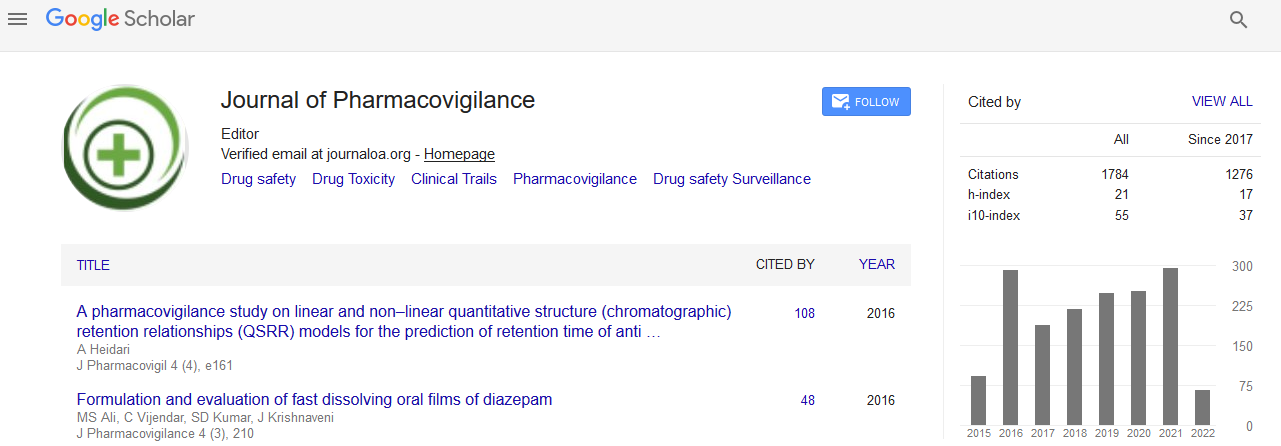Indexed In
- Open J Gate
- JournalTOCs
- The Global Impact Factor (GIF)
- RefSeek
- Hamdard University
- EBSCO A-Z
- OCLC- WorldCat
- Publons
- Euro Pub
- Google Scholar
Useful Links
Share This Page
Journal Flyer

Open Access Journals
- Agri and Aquaculture
- Biochemistry
- Bioinformatics & Systems Biology
- Business & Management
- Chemistry
- Clinical Sciences
- Engineering
- Food & Nutrition
- General Science
- Genetics & Molecular Biology
- Immunology & Microbiology
- Medical Sciences
- Neuroscience & Psychology
- Nursing & Health Care
- Pharmaceutical Sciences
Abstract
Effect of Tenofovir/Emtricitabine/Efavirenz with and without Chloroquine in Patients with HIV/AIDS C3: Double Blinded Randomized Clinical Trial
Banda-Lara Marco Isaac, Martínez-García María del Carmen, Vázquez-Rosales José Guillermo, Rendón-Macías Mario Enrique, Flores-Hernández Sergio, Rivera-Benítez César, Santos-González Margarito and Carrillo-Avalos Blanca
Background: The use of antiretroviral therapy (ART) reduces both mortality and morbidity of patients with HIV/ AIDS. The effects of chloroquine against HIV replication are widely known.
Objective: To demonstrate that beginning HIV treatment with ART (tenofovir/emtricitabine/efavirenz) + chloroquine increases by at least 20% the proportion of patients with viral load (VL) <50 copies/mL and >200 CD4+/mcL compared to patients receiving only ART at six months follow up.
Method: A randomized double-blind clinical trial was performed in 95 patients at the Infectious Diseases Department of the Hospital General de Mexico diagnosed with HIV/AIDS classification C3 before their first ART: 48 patients in the ART + placebo group and 47 in the ART + chloroquine group.
Results: A difference of 37% at six months of treatment in advantage of the group of ART + chloroquine (p<0.001), and seven times greater chance of improvement using chloroquine in the first six months of treatment. Chloroquine decreased the frequency of IRIS in 20%, compared with the group that initiated ART only at six months follow-up with statistical difference (p=0.029).
Conclusion: Chloroquine can improve the immune response and decrease the frequency of inflammatory syndrome by immune reconstitution at six months if added to the initial ART with tenofovir/emtricitabine/efavirenz.


